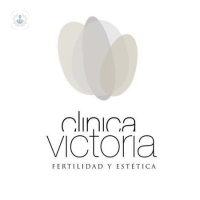Infertility
What is infertility?
According to the World Health Organization, infertility is a pathology of the reproductive system that makes pregnancy impossible. Infertility affects the couple, both men and women, who can not have a child naturally. There are two types of infertility. Primary infertility, which affects couples who have not achieved a pregnancy after at least one year of sexual intercourse without contraception, and secondary infertility, in couples who have been able to get pregnant and can not now.

Symptoms of infertility
The symptoms of infertility can vary in men and women.
In women, the symptoms may be related to the menstrual cycle and ovulation. They can be abnormal menstruation, with bleeding more abundant or less than usual; irregular menses, when the number of days between each menstruation is different every month; amenorrhea, that is, absence of menstruation, and dysmenorrhea, very painful menstruations. Symptoms may also occur without regard to menstruation, these being the appearance of whitish flow in the nipples (without having any relation to breastfeeding) or pain during sexual intercourse.
In men, the symptoms of infertility related to sperm can be the presence of semen of yellow or green tonality, red or brown spots; ejaculations very odorous, thick, watery or with little amount. Also, they can witness symptoms unrelated to semen such as: changes in hair growth, alterations in sexual desire, erection problems and stiffness in the testicles.
What are the causes of infertility?
The causes of infertility common between men and women are:
- Congenital defects of the reproductive system
- Cancer, tumors, chemotherapeutic drugs, radiotherapy.
- Excess of alcohol consumption
- Hormonal imbalance.
- Obesity.
- Scars due to sexually transmitted infections, abdominal surgery or endometriosis.
- Smoking.
- Advanced age.
- Pelvic infection.
In women, infertility can arise as a result of:
- Autoimmune thrombi.
- Coagulation disorders
- Diabetes
- Excessive exercise
- Eating disorders
- Neoplasms in the cervix and / or uterus, ovarian cysts, polycystic ovarian syndrome.
- Tubal ligation or reanastomosis.
- Thyroid.
In men, the causes of infertility can be:
- Impotence
- Infection
- Consumption of certain medicines, such as cimetidine, spironolactone and nitrofurantoin
- Retrograde ejaculation
- Scarring due to sexually transmitted diseases, injury or surgery
- Toxins in the environment
- Vasectomy or failure of the vasovasostomy.
Can infertility be prevented?
As a general rule, if the infertility is genetic or caused by an illness, it can not be remedied. However, there are certain things that favor infertility that can be avoided:
- Take preventive measures against Sexually Transmitted Diseases (STDs).
- Do not consume drugs. Do not drink alcohol frequently or in excess.
- Maintain good personal hygiene.
- In women, go for a gynecological examination once a year once they are sexually active.
- In men, wear loose underwear and avoid hot baths, saunas and radiations.
What is the treatment of infertility?
The methods to treat infertility in men and women are the taking of hormones to balance the hormonal imbalance, the use of supplements to improve fertility and the taking of antibiotics when suffering from infection. In women, undergoing minor surgery that removes blocking tissues or scarring of the fallopian tubes, uterus or pelvic area is another option. If this does not work, you can proceed to assisted reproduction techniques.
















